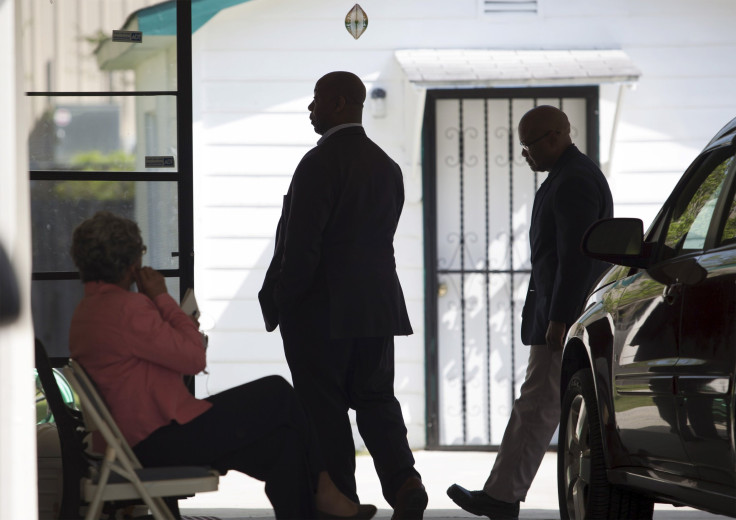Walter Scott Death: Black Veterans Plagued With High Unemployment, Homelessness

Walter Scott struggled to pay his bills, had multiple run-ins with police and was driving a car with a malfunctioning brake light when he was killed by a South Carolina police officer over the weekend in a shooting that has since become part of a national debate on how white law enforcement officials treat black men. But decades earlier, before his many arrests and financial woes, Scott was a grinning, fresh-faced Coast Guard recruit ready to serve his country.
Scott's journey from a young serviceman to a troubled, middle-age father of four underscores some of the challenges facing other black veterans across the United States. While it's unclear how Scott came to have such a difficult life before his death, black veterans for years have disproportionately struggled with homelessness, unemployment and other social woes, federal data and military leaders say.
"Veterans overall face challenges," said Will Gunn, former general counsel for the U.S. Department of Veterans Affairs and a black retired Air Force colonel. "When you have a black veteran, those issues are often magnified because of issues of race."
Walter Scott, a veteran of the United States Coast Guard. pic.twitter.com/8xJkkUP5JP
— Michael Skolnik (@MichaelSkolnik) April 8, 2015Blacks make up 34 percent of all homeless veterans, who traditionally experience homelessness at a higher rate than the general population. Meanwhile, the unemployment rate among black veterans is more than double that of white veterans, and outpaces all other veteran ethnic groups, the Bureau of Labor Statistics says.
"Clearly minority veterans in the unequal society we live in today, they are affected more than white veterans," said Charles Greinsky, an Army veteran who serves on the New York City veterans' advisory board.
Federal officials need to do more to address veteran unemployment, housing and education and vocational training opportunities to ensure veterans are able to smoothly return to civilian life, Greinsky said. Photos circulating online of Scott in his Coast Guard uniform this week illustrate how difficult that transition can be for some veterans, Greinsky said.
Scott, 50, was fatally shot by Officer Michael Slager of North Charleston, South Carolina, on Saturday during a routine traffic stop. Slager was charged with murder and fired from the department after video of the shooting taken by a bystander circulated online. It showed Scott running away from Slager, who then fired multiple rounds at Scott's back. Scott's family said he was running away because he owed child support and didn't want to go to jail for not making those payments. He had been arrested 10 times, mostly for failing to pay child support.
"Thirty years can be a lifetime if you have a problem with education and employment," Greinsky said. "You could be steady on a downward traction."
Blacks in the United States are often subject to racial discrimination that limits housing and employment opportunities and might increase their risk of arrest, multiple studies show. The unemployment rate for blacks has been double the rate of whites for decades, studies of U.S. labor conditions say. Blacks, Hispanics and Asian-Americans looking for housing are often asked more questions about their finances than whites. Crime statistics also suggest Scott's interaction with Slager might not have occurred if he wasn't black. Blacks are stopped twice as often as whites for routine traffic violations.
Military service doesn't make racial discrimination any less frustrating or real, Gunn said. "Race or skin color, you can't remove those in the same manner than you can remove the uniform," he said. "So you have people who are returning and they are still returning to those same issues that they confronted before they went to the military. ... What the nation really needs is a reminder. We need to constantly remind folks that we have people here that have given their all for this nation and we need to continue to honor them even after they take off their uniform."
© Copyright IBTimes 2024. All rights reserved.






















